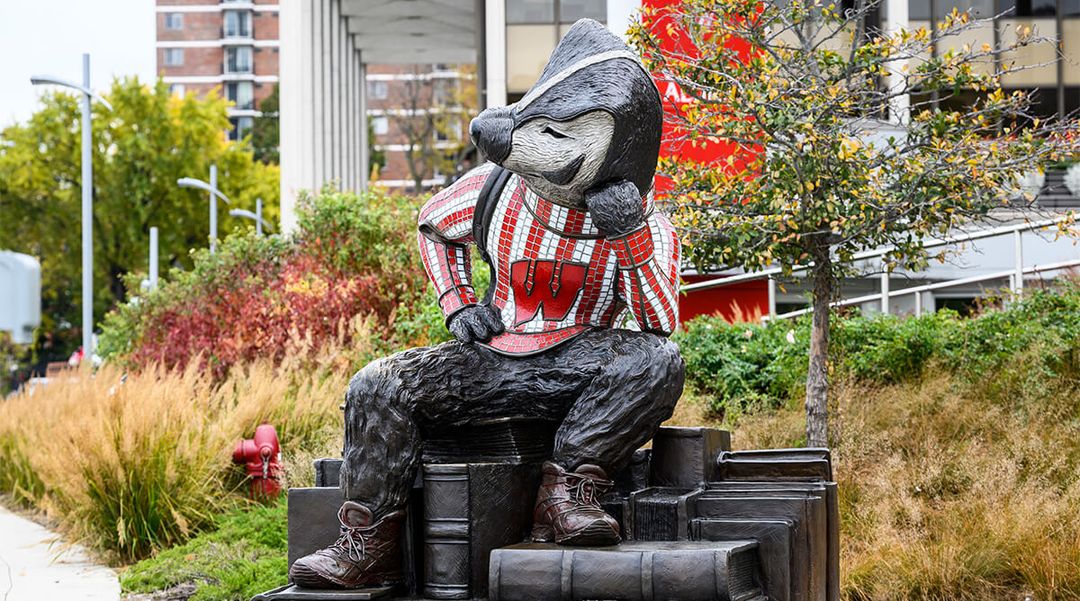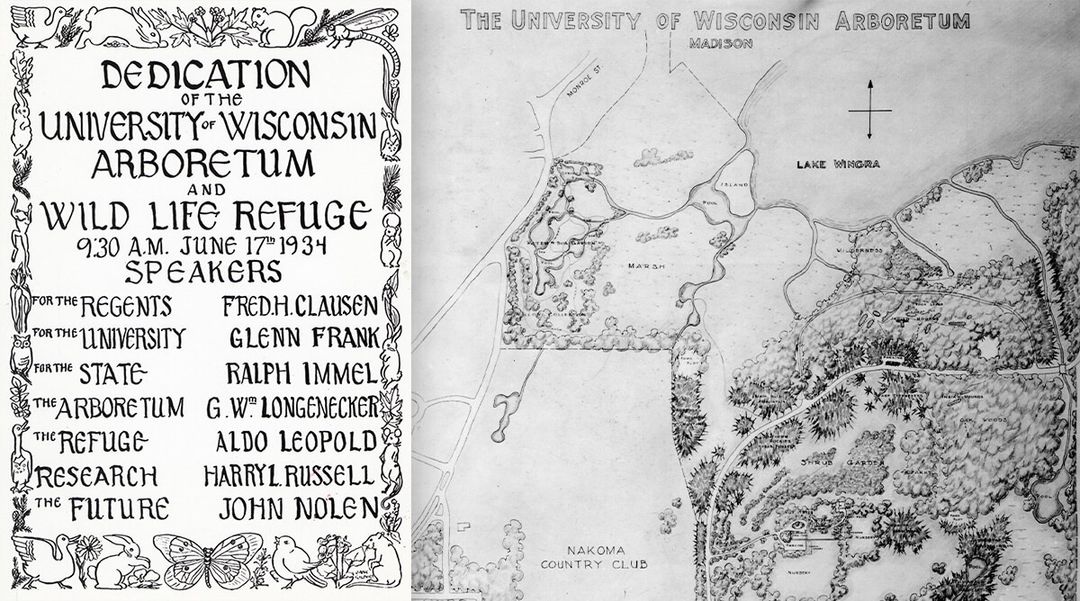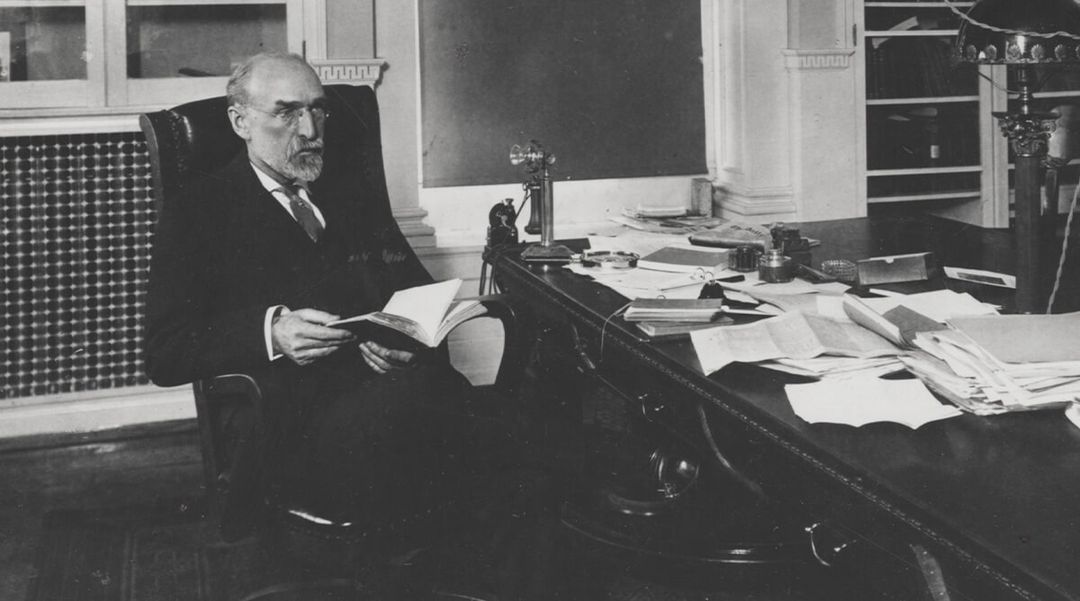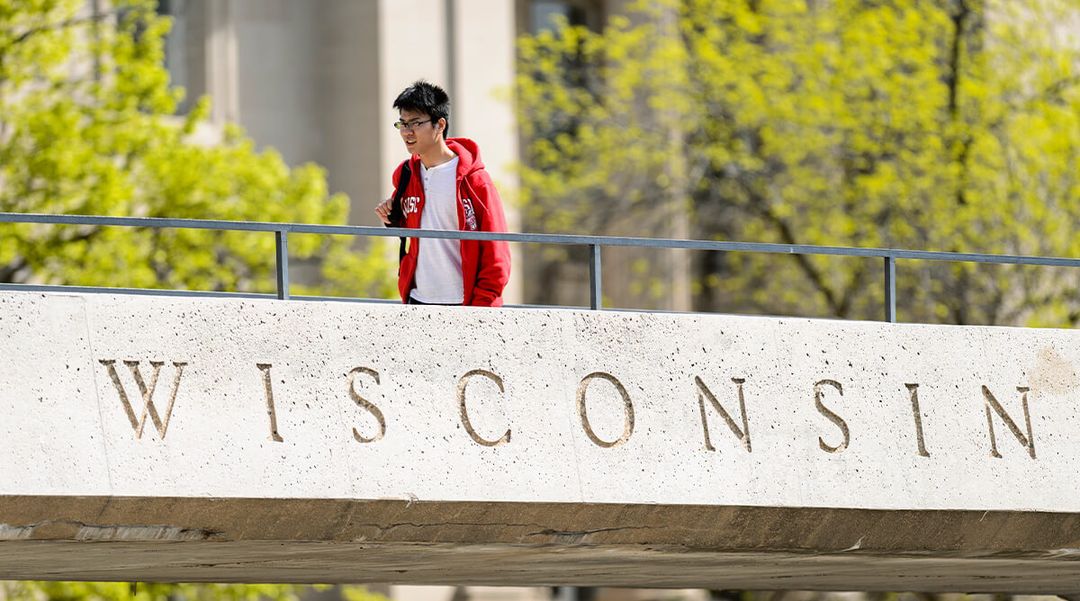Interim Chancellor Ward is focused on what’s next for UW-Madison
David Ward’s title at the University of Wisconsin-Madison may be “interim chancellor,” but that doesn’t mean he’s on campus to simply be a caretaker.
“That’s not my style,” Ward says with a smile. “My job is to address the issues and start a dialogue so when someone else comes along, there may be something ready to implement.”
In late June, UW System President Kevin P. Reilly tapped Ward, who served as UW chancellor from 1993-2000, to take over for Biddy Martin PhD’85, who left after three years on Bascom Hill to become president of Amherst College.
The search for UW-Madison’s next chancellor will last about a year, with the goal of putting a permanent leader in place by next summer. This gives Ward precious little time to sustain the initiatives that take advantage of flexibilities delivered through the New Badger Partnership to change how UW-Madison’s budget is delivered and allocated.
Ward says the university’s funding is a pressing issue: “We have to start doing things differently.”
“Higher education, in terms of cost, is at a crisis point,” Ward says. “It’s as if there’s a pendulum, and in the past, we held on through bad years and waited for good years. But the pendulum has fallen off its pin and is unlikely to swing back. ”
Ward knows working with the campus community to set the stage for new ways of thinking about competition and funding will be a challenge. Instead of slowing down during retirement, Ward actually found himself thinking of ways to speed up the process of change in a climate where even modest innovations can be complicated by decades-old traditions and processes. One of his hopes is to try and foster a dialogue about creative internal responses to a resource crisis.
Also on Ward’s immediate “to-do” list is improving the spirit of cooperation among UW System institutions. He credits his tenure as leader of the American Council on Education (ACE) in Washington, D.C. for his deep understanding of how university systems function and says his instinct is to make what is already in place work, but with greater effectiveness and less bureaucracy.
“I need to focus instead on positioning UW-Madison as effectively as I can,” he says. “We must improve communication between [UW] campus and the system, while still making sure the unique properties of UW-Madison are fully recognized.”
During his seven years with ACE, Ward also spent plenty of time reflecting on the challenges that high tuition costs can pose for students. He worries that navigating the system can be confusing for students and their parents, from understanding what he calls “sticker price versus actual price,” to finding the amount and type of aid that is available and knowing how to apply.
“Responsible tuition policy is an area where we need a better mutual understanding and trust with the public,” Ward says. “At the legislative level, there must be more responsibility for budget cuts that necessarily drive increases in tuition. Above all, increased need-based aid is critical to the democratic purpose of higher education."

To get that point across, Ward urges UW alumni whose lives were impacted by financial aid and support to share their stories. He was happy to learn many had done just that during a social media campaign waged in late July in support of Pell Grants.
“Alumni have become great advocates,” Ward says. “Former students have the unique position of reflecting backward from an adult point of view, and their friendly voices can help to tell our story.”
“We have to be active in staying connected with our alumni,” Ward says. “We need everyone to have a continued connection with this institution, not only for their support but their feedback as well. The Wisconsin Alumni Association has an important role in acting as a ‘grand central station’ where we can bring together all of these alumni voices and sort through what they are saying.
“Almost every university I know values that sense of reciprocal engagement between graduates and the institution, and if we’re doing things wrong, it’s important they tell us that too,” he continues. “It goes beyond financial support; it’s crucial to have their judgment, and to have them join with us, and be a part of the community.”










